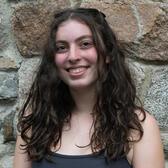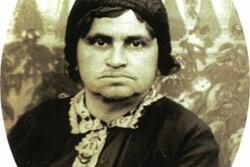Bringing Jewish Feminism to Youth Programming
When I was in middle school, my synagogue ran a program called “Rosh Chodesh: It’s a Girl Thing,” where all of the tween girls of the Hebrew school would hang out monthly. To my understanding, it was intended to provide a community for us during what is often a tumultuous age, grounded in our shared Jewishness. But while the intent was good, meetings often devolved into our harried leader trying to get even a moment of our attention while we each tried to assert our coolness by shouting at the top of our lungs. Ultimately, my cohort tended to reproduce some of the same toxic social dynamics the group was supposed to help us work through. Soon enough, I stopped going and added it to my list of reasons to resent Hebrew school.
To anyone who survived middle school, this scene should sound familiar enough. I can’t help looking back on it as a missed opportunity, both for me as a participant, and for the organizers of the program. Not only is there ample evidence that youth programming can actually be fun, positive, and educational, but it also could have been a perfect example of feminist education for Jewish youth. Imagine instead a program focusing on activities like movie discussions, art projects, field trips, or cooking, to help us build community and connect our personal experiences to our identities as women or non-binary people, youth, and Jews. Rather than another way for middle schoolers to drive everyone crazy, the group could’ve helped us see the world through a feminist lens. Fortunately, since my experience, “Rosh Chodesh: It’s a Girl Thing” seems to have evolved towards exactly that kind of meaningful community and education.
We need more of these kinds of transformations: going from programs that don’t meet the needs of their participants or articulate a strong Jewish feminism, to a Jewish community that integrates vibrant Jewish feminism into all its youth spaces.
You may ask, why bother? What’s the point of integrating Judaism and feminism with youth education, when each of those areas could just as easily be addressed in separate spaces?
First and foremost, we are ethically obligated as a Jewish community to meaningfully orient towards feminism. Jewish concepts like b’tzelem elohim, tikkun olam, and klal yisrael call each of us to work for justice, freedom, and solidarity—and in particular, to honor the bodily autonomy of every member of our communities. We cannot claim to live in accordance with Jewish values unless we are actively striving for a feminist world. We are also obligated to engage with feminist ideas from within Judaism, from the Talmud’s expansive notions of gender to the history of Jewish women’s traditions. I know that I wish that I had grown up learning Jewish concepts like timtum and engaging with thousands of years of queer Judaism, rather than only hearing about it as a nontraditional deviation much later.
This is also an opportunity to strengthen both our Jewish and feminist identities. Young Jewish people will be better able to articulate their feminism both politically and personally when they are raised with it as an integral part of their own culture. At the same time, Jewish feminist education helps create stronger connections to Judaism, showing how Jewish identity is a source of moral and personal guidance in the modern day, and makes the Jewish community more inclusive to all.
It is also especially important given the harmful gender dynamics often present in Jewish youth spaces. For instance, think how norms might shift in Jewish spaces like summer camp or youth movements if feminist education was widespread. Instead of an often-toxic hookup culture and rigid gender roles, we would have acceptance of a wide range of gender expressions, sexualities, and a strong culture of consent and bodily autonomy.
The emphasis on youth also allows change to ripple throughout the Jewish community. Imagine what might happen when young Jews are empowered to have conversations with their families about, for example, egalitarianism in religious practice or the status of women in Israel and Palestine.
There is a trend of small but growing programs that aim to do just that. Our next steps towards the Jewish feminist future should be to continue to strengthen these initiatives and also take this kind of Jewish feminism out of these designated spaces and into the Jewish community at large.
Picture this: Jewish day schools, camps, Hebrew schools, and youth organizations all act as conduits to create a strong sense of feminism in Jewish youth, grounded in Jewish identity and teachings. For those at young ages, Jewish spaces focus on respect for all genders, basic consent education, and values of social justice and collective responsibility, all grounded in discussion of Jewish values and stories. When people reach young adulthood, we can move into more specific discussions of gender roles in the Jewish community, interpretations of Jewish texts and practices relating to gender, sexuality, and reproduction, and explicit consent education. For teenagers, Jewish spaces can promote direct activism and peer leadership in education, religious practice, and social spaces. It will be a beautiful day when Jewishness means growing up not with mainstream, oppressive frameworks, but truly immersed in (as Svara calls it) traditionally radical thought.
This piece was written as part of JWA’s Rising Voices Fellowship.







